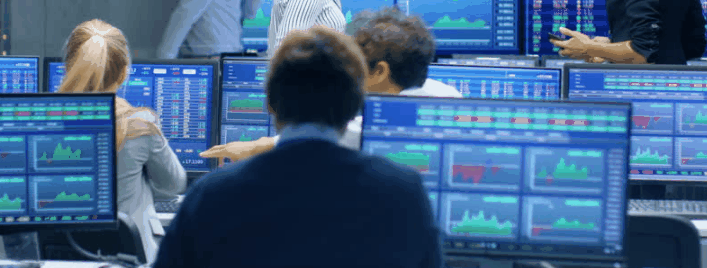
Spain's top-flight index finished the session flat, but only after plumbing a fresh year-to-date low during the session, helped by gains in lenders' shares after Italian deputy prime minister Matteo Salvini dialed-back on his challenge to Brussels's spending limits.
- 11.448,200
- -0,17%
The Ibex 35 held onto the 9,300 point level, which if lost might see the benchmark drop to the 9,000 point area, according to technical analysts.
Caixabank was the top riser, with its shares adding 4.43% on the heels of supportive comments out of analysts at RBC Capital Markets, who revised their target price for the shares 14% higher to €4.4.
Other top gainers included Bankinter (2.21%), Bankia (1.5%) and Banco Sabadell (1.4%).
Going the other way, Tecnicas Reunidas fell 3.2%, followed by stock in Mediaset (-2.93%) and ArcelorMittal (-2.25%). Shares in Naturgy (-0.93%) also traded lower, with Kepler having raised its target price, albeit to below the shares' then current level. Inditex meanwhile dripped another roughly 1.0% lower.
Out on the broader market, on the Mercado Continuo, investors binned their shares in Telepizza, with the stock shedding 6.32%, after the company posted a 39.0% fall in first-half profits.
TECHNICAL ANALYSIS
"It's too soon to say the worst has passed for the Ibex 35," Bolsamania.com's chief technical analyst, José María Rodríguez, said.
In his opinion, Tuesday's price action only served as confirmation of what the key level of technical support for the benchmark to keep an eye on was.
"If the 9,300 to 9,330 point area is lost by a clear margin, on a close-of-day basis, then the Ibex 35 will likely snap lower to 9,000 and perhaps even return to 8,700," he added.
To the upside, the first level of technical resistance lay at 9,671.0.
CATALONIA AND ARGENTINA IN THE SPOTLIGHT
Despite the multiple headwinds markets were facing overseas, investors in Spain were more preoccupied by domestic developments, especially in Catalonia, where the region's President, Quim Torra, was expected to announce his objectives for the fall.
Regional politics aside, investors were also keeping an eye on the news headlines as Argentina's Mauricio Macri presented his agenda for economic reforms to the International Monetary Fund, with savers in the Andean country keen to avoid the much feared 'corralito'.
In the background, interest was greatest around the possibility that the US administration would unveil tariffs on a further $200.0bn-worth of Chinese goods as soon as this week.
On this side of the Pond, Bank of England chief Mark Carney told a Treasury Select Committee he was open to extending his stay at the helm of the Bank.
Outside of euro area periphery markets, indices were awash in red, with the Dax and Cac-40 giving back more than 1.0% each.
Italian stocks however fared considerably better, after one of Italy's deputy prime ministers, Matteo Salvini, rowed back on his threat of pushing for a public deficit worth 3% of gross domestic product in the country's 2019 Budget law.
According to Italian daily La Stampa, Salvini said he was now pushing for a deficit of up to 2.0% of GDP.
On the back of Salvini's remarks, Milan's FTSE Mibtel climbed 1.01% or 205.21 points to 20,601.00, helped by a 14 basis point slide in the yield on the benchmark 10-year Italian Treasury note to 3.02%.
To take note of, the day before the Financial Times had called attention to the Italian Treasury's need to increase its pace of debt issuance in what remained of 2018.

